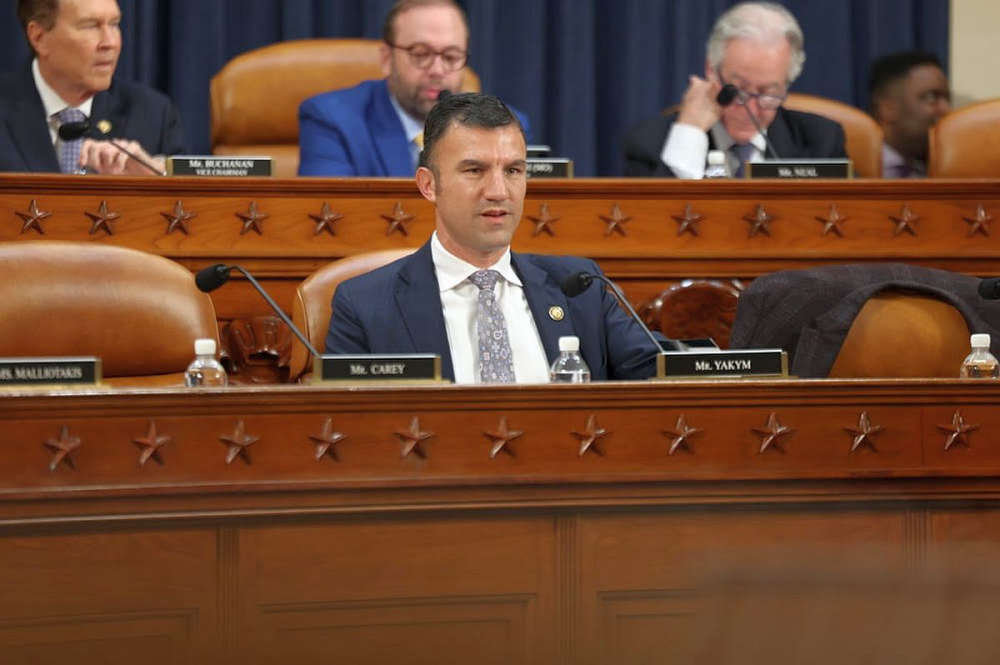
The bill proposes a requirement for multiple dual-message networks to operate on a single card — a move that is not only technologically impractical but would also come with a staggering price tag for consumers.
Indiana has always thrived on the determination and resilience of its people. However, today, the fruits of that hard work are being undercut by rising costs, federal regulations and policies that make it increasingly difficult for Hoosiers to sustain their livelihoods.
One troubling example of this is the Credit Card Competition Act (CCCA), a piece of legislation currently making its way through Congress. At first glance, the bill seems straightforward — it aims to limit interchange fees on credit cards and give merchants more control over the electronic payment networks they use. But a closer look reveals that the CCCA is not the pro-competition measure its name suggests. In reality, it would stifle competition and increase government intervention in the credit card industry.
The bill proposes a requirement for multiple dual-message networks to operate on a single card — a move that is not only technologically impractical but would also come with a staggering price tag for consumers. Implementing such a system could cost up to $5 billion, a burden that would ultimately fall on credit card users. At a time when families across Indiana are already grappling with rising prices, forcing them to shoulder unnecessary costs to overhaul a functioning system is the wrong move.
Beyond the immediate financial burden, the CCCA also threatens to undermine fundamental market freedoms by allowing the federal government to interfere in private contracts. This intrusion could force smaller community banks and credit unions to stop offering co-branded credit cards, which are popular among consumers. Even worse, it could lead to the end of rewards programs that millions of Americans rely on for everyday expenses such as travel, gas and groceries.
We’ve seen similar misguided policies before. In 2010, Congress passed the Durbin Amendment, which imposed similar restrictions on debit card transactions. Rather than benefiting consumers, the result was a reduction in perks and free services previously offered by banks. A report from the Government Accountability Office found that 65% of non-interest checking accounts would have remained free had those regulations not been enacted.
We can learn from past mistakes as the passage of the CCCA would lead to similar outcomes. Consumers would be forced to foot the bill for fixing a credit card system that doesn’t need fixing, and the rewards programs many families rely on would be significantly reduced, especially during a time of economic strain.
I hope Sens. Mike Braun (R-IN) and Todd Young (R-IN) will recognize the harm this bill could cause and stand with their constituents by voting against it.


 Putnam County food and beverage tax discussed
Putnam County food and beverage tax discussed
 South Putnam's Kaylee Williams seventh at wrestling state finals
South Putnam's Kaylee Williams seventh at wrestling state finals
 USDA launches Lender Lens Dashboard to promote data transparency
USDA launches Lender Lens Dashboard to promote data transparency
 Cancer Action Day at the Indiana Statehouse: Advocates call for legislation to reduce the burden of cancer
Cancer Action Day at the Indiana Statehouse: Advocates call for legislation to reduce the burden of cancer
 Six sentenced in sweeping multi‑million‑dollar cargo heist
Six sentenced in sweeping multi‑million‑dollar cargo heist
 U.S. Rep. Yakym’s bipartisan BARCODE Efficiency Act Advances
U.S. Rep. Yakym’s bipartisan BARCODE Efficiency Act Advances
 GFD, State Fire Marshal investigating house explosion
GFD, State Fire Marshal investigating house explosion
 Greencastle councilman finalist for United Way Award
Greencastle councilman finalist for United Way Award


